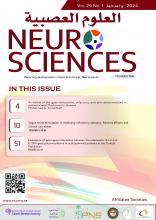NOVEMBER 10, 2023 - In the trial, called Surveillance To Prevent AV Block Likely to Occur Quickly (STOP BLOQ), the incidence of AVB increased with higher levels of anti-Ro/SSA antibodies, reaching 7.7% for those in the top quartile, which increased to 27.3% in those with a previous child who had AVB, although participant numbers in that category were small. Antibody titers did not change over time. The trial also revealed that home-based fetal heart rate monitoring reliably detected conduction abnormalities, which may reduce the need for serial echocardiograms.
“Examining the levels of anti-Ro/SSA antibodies is an important advance since for women with low titers, monitoring is probably not necessary and for those with high titers the increased risk supports surveillance,” said corresponding author Jill Buyon, MD, of NYU Langone Health. She added that this study also indicated that titers of antibodies do not change and that additional factors besides antibodies contribute to risk.
“That home monitoring can rapidly and accurately identify early fetal conduction disease is a major step forward that may significantly decrease the need for echocardiograms and hopefully facilitate reversibility,” added senior author and research professor Bettina Cuneo MD, of the University of Arizona-Tucson College of Medicine.
URL upon publication: https://onlinelibrary.wiley.com/doi/10.1002/art.42733
Full citation: “Prospective Evaluation of High Titer Autoantibodies and Fetal Home Monitoring in the Detection of Atrioventricular Block Among Anti-SSA/Ro Pregnancies.” Jill. P. Buyon, Mala Masson, Caroline G. Izmirly, Colin Phoon, Ruben Acherman, Elena Sinkovskaya, Alfred Abuhamad, Majd Makhoul, Gary Satou, Whitnee Hogan, Nelangi Pinto, Anita Moon-Grady, Lisa Howley, Mary Donofrio, Anita Krishnan, Homa Ahmadzia, Stephanie Levasseur, Erin Paul, Sonal Owens, Kristopher Cumbermack, Jyothi Matta, Gary Joffe, Christopher Lindblade, Caitlin Haxel, Katherine Kohari, Joshua Copel, James Strainic, Tam Doan, Karla Bermudez-Wagner, Conisha Holloman, Shreya S Sheth, Stacy Killen, Theresa Tacy, Michelle Kaplinski, Lisa Hornberger, Philip M. Carlucci, Peter Izmirly, Nicola Fraser, Robert M. Clancy, Bettina F. Cuneo. Arthritis Rheumatol; Published Online: 10 November 2023 (DOI: 10.1002/art.42733).
Copyright © 2019 The Cochrane Collaboration. Published by John Wiley & Sons, Ltd., reproduced with permission.
- Copyright: © Neurosciences
Neurosciences is an Open Access journal and articles published are distributed under the terms of the Creative Commons Attribution-NonCommercial License (CC BY-NC). Readers may copy, distribute, and display the work for non-commercial purposes with the proper citation of the original work.






